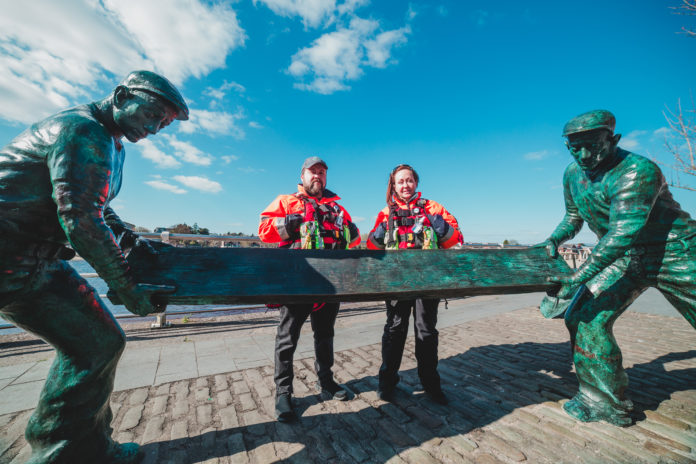
AS THE Covid-19 pandemic presents its own set of challenges, members of Limerick Suicide Watch (LSW) are maintaining their patrols along the River Shannon to protect those at their lowest ebb.
Much like coronavirus, suicide can take a person’s life without much warning. The victims die alone. Loved ones do not get to say goodbye.
LSW volunteers patrol the bridges of Limerick city and its suburbs checking for those most likely to succumb to another scourge that is robbing lives and leaving families bereft.
Four years ago, Edel and Alex Henriques signed up to join the 70-strong group who are currently patrolling with reduced numbers and observing social distancing.
The nature of their task means they may have to get closer than two-meters to a vulnerable person if it means pulling them back from the brink.
“We are more aware of physical distancing, but there’s obviously circumstances where you can’t do that. When people are really upset, then you can’t really be that far away from them in order to talk them down,” Ms Henriques said.
The threat posed through close contact will not deter her from preventing a person from endangering themselves.
If she has to grab them to save them she will: “Absolutely, yes, whatever it takes.”
Some of the group have decided to postpone their involvement until the virus clears.
“The only thing that’s changed is we have smaller groups going out because we need to protect our own members. So, if any of them have underlying issues or have people at risk at home then we advise them not to out on patrol,” she explained.
They have seen a drastic reduction in the number of people in distress over recent weeks and this has also reduced the drain on resources.
“At the moment we are not seeing as much as activity out along the riverside. So, if we see one or two people showing signs of distress we can go to them immediately and we are not looking at five different scenarios. That’s not a bad thing.”
“The last few weeks since the pubs closed have been the quietest. We’ve had two interventions and perhaps six incidents.
“Interventions would be somebody telling us they are suicidal. Incidents would be that they’re not suicidal but want to talk. Someone in their family may have died by suicide, or they might be running away from home, or they may be drunk and just need help.”
Edel and Alex have three children, so they are never out on patrol together.
“We have protocols where we can’t be on the same team. If you see your partner in danger then you’re possibly going to pull them back. It might sway your judgement in a case with a loved one involved,” Edel explained.
Alex, who is originally from Portugal, has been volunteering most of his life.
“Obviously we are sanitising everything because we have different members coming into our base, and we are patrolling two metres apart. We try to talk to a person from a distance,” he explained.
“I was a Boy Scout and a volunteer with the fire service in Portugal. I always try to help a little bit, and it makes me feel good knowing that I am helping people”.
LSW has had 350 interventions and incidents since May 2016, averaging on two a week and both Edel and Alex have experienced positive intervention outcomes.
The members encounter people from all walks of life who are in distress due to a variety of issues, including bullying, financial pressures, addiction, homelessness, abuse and family breakdown.
They are busier around Christmas or social occasions as well as annual events such as exam results.
A registered charity, the group is run entirely on voluntary donations and costs around €47,000 a year to maintain with the average cost of kitting out a member amounting to €450.
The group also designed a mobile phone app with a list of contacts for mental health services, which can be downloaded free of charge from www.limericksuicidewatch.ie


